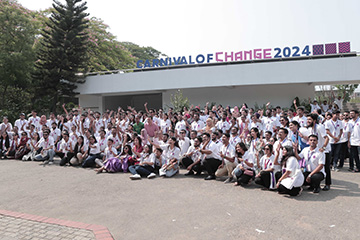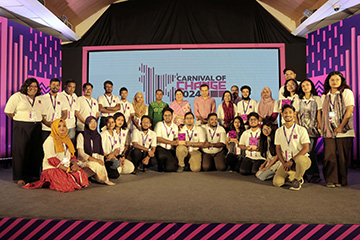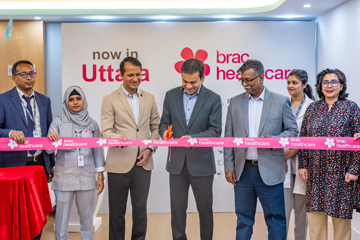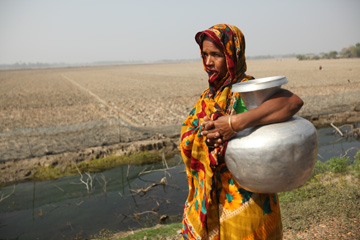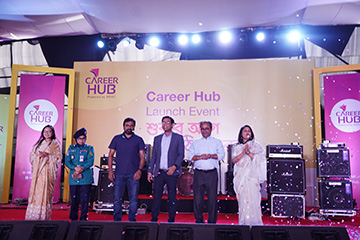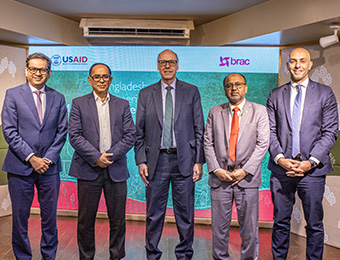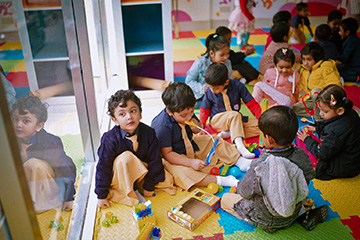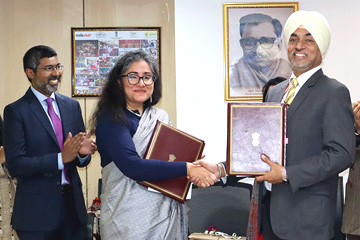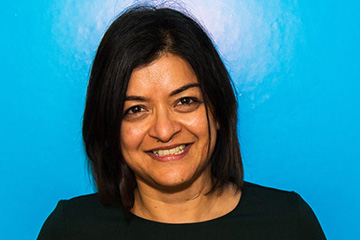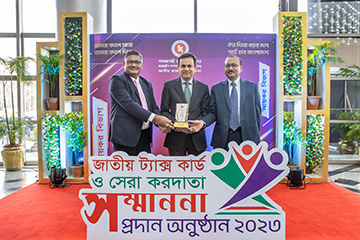
News (828)
The aspiration to shape a new future culminated in a vibrant two-day celebration of youthfulness
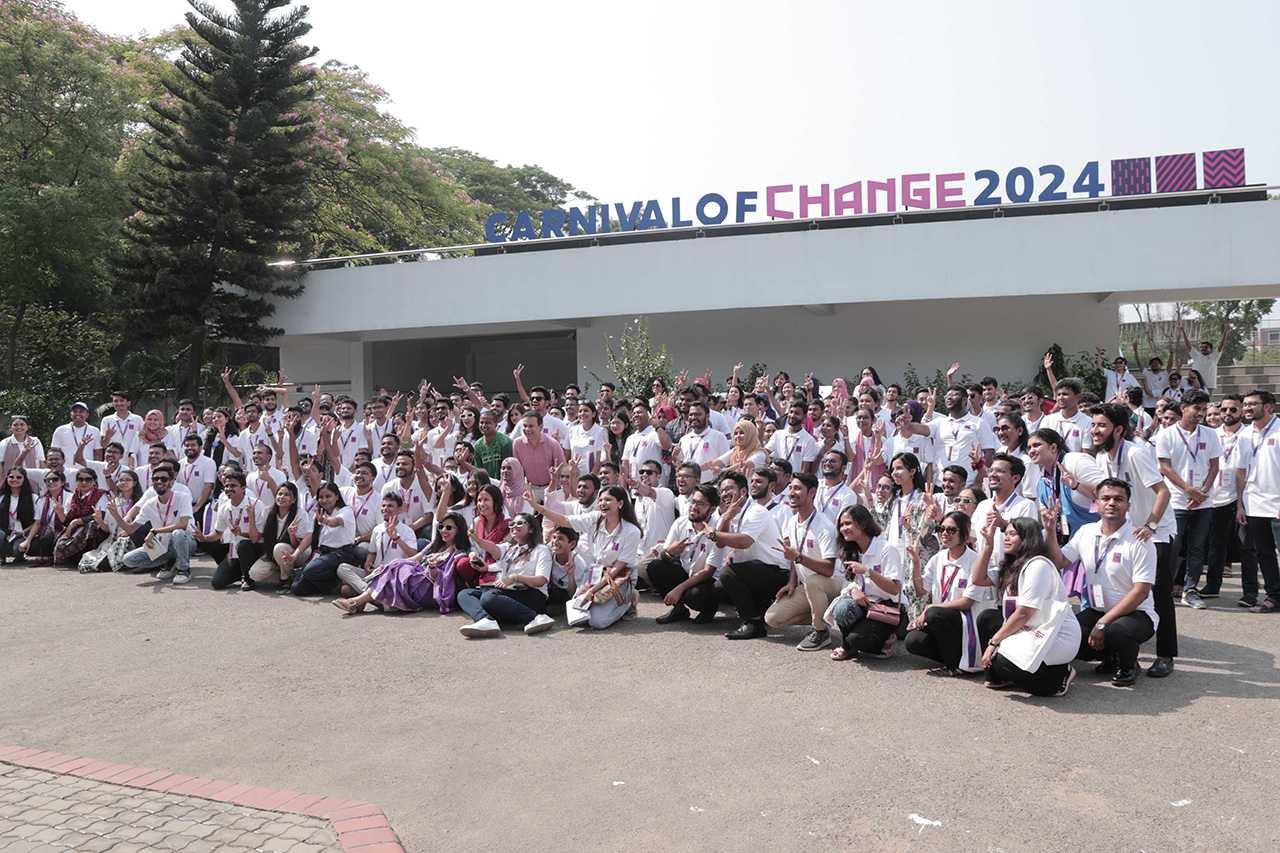
Amidst workshops on career management, negotiation skills, art therapy, and various other topics, the two-day-long Carnival of Change 2024, organised by BRAC 'Amra Notun Network', concluded today. The focus of today's event was on 'Inspiring the Youth'.
BRAC Youth Platform (BYP) organised this event in BRAC CDM, Savar. Today, Sunday, 28 April 2024, marked the conclusion of this two-day festival.
The young changemakers of 'Amra Notun Network' had the opportunity to participate in workshops on six topics alongside development workers, youth activists, and mental health professionals.
At the end of the workshops, a TED Talk-style discussion ensued with young changemakers and cartoonist and youth activist Morshed Mishu. As a representative of change, Morshed Mishu encouraged the young people to take the lead in solving social problems.
The TED Talk delved into various initiatives of changemakers aimed at bringing transformative changes across various strata of society, identifying obstacles in their work, and brainstorming solutions.
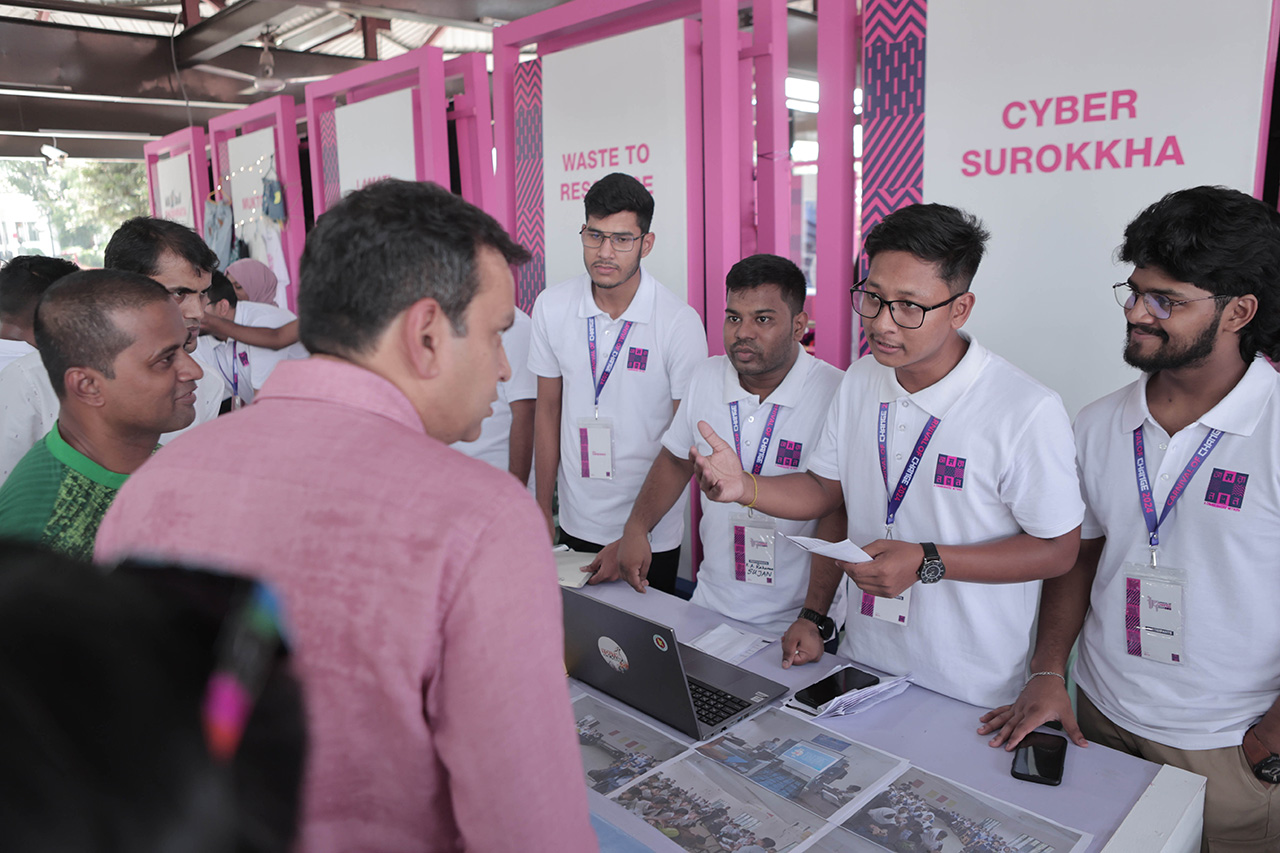
In a World Café-style discussion titled 'Current Climate Crisis', changemakers deliberated various climate-related issues. The session was participated by Dr. M. Liakath Ali, Director of BRAC's Climate Change Programme (CCP), Urban Development Programme (UDP), and Disaster Risk Management Programme (DRMP); Sankalita Shome, Chief Co-ordinator, Bangladesh Sustainability Alliance (BSA) hosted by BRAC; Shamim Ahmed Mridha, Founder and CEO, Eco-Network Global; Tawhida Shiopa, Founder and CEO, Moner Bondhu; Jahnnabi Rahman, CEO and Co-Founder, Relaxy; Murad Ansari, MD and CEO, Psycure; Sadia Jahan Rothi, Board Director, Eco-Network Global; Mehran Khan, Head of BRAC Youth Platform (BYP); and Detepriya Roy Chowdhury, Senior Manager, Strategy and Communications, BYP.
In the final part of the second day, the changemakers participated in a panel discussion titled 'Youth and the Future of Bangladesh', with panelists including social media influencer Arif Jebtik and Dr. Erum Mariam, Executive Director, BRAC Institute of Educational Development (BIED). The discussion was moderated by Md. Shariful Islam Hasan, Associate Director of BRAC Migration Programme and Youth Platform, who elucidated on how the Amra Notun Network training programme initiated by BYP could influence the mindset of future generations and current youth.
The conclusion of the second day's event was marked by the remarks of Safi Rahman Khan, Director of BRAC's Education, Skills Development, and Migration Programme.
The two-day 'Carnival of Change 2024', held on 27 and 28 April, aimed to inspire and empower the next generation of Bangladeshi changemakers through recognition, dialogue, collaboration, and cooperation.
BRAC Youth Platform is working towards creating a culture of collaborative social leadership among the country's youth, based on compassion, fostering human values, and developing problem-solving skills for the 21st century. The platform, among other initiatives, highlights the significant role of the youth participants of 'Amra Notun Network' in social development.
Celebration of Change: Young Changemakers Award 2024
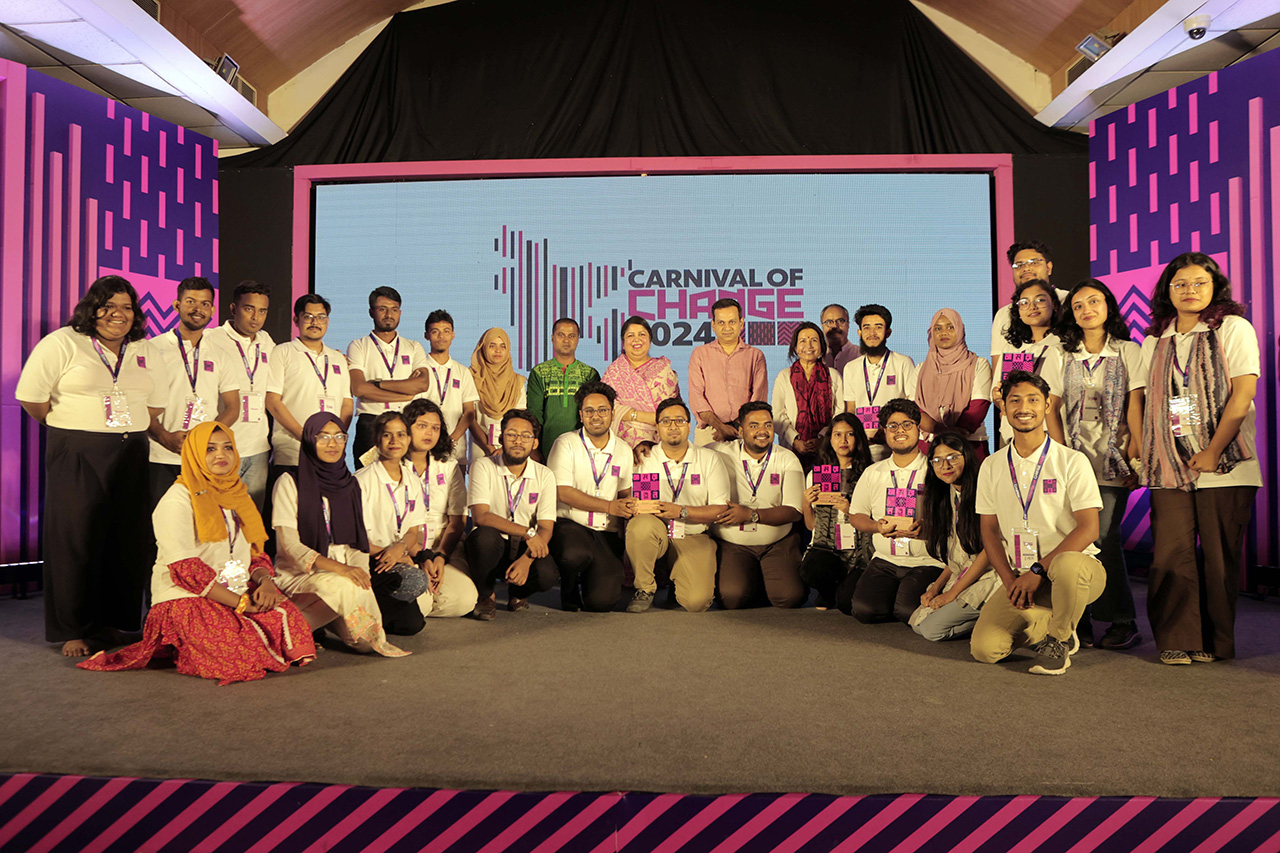
To celebrate the multifaceted endeavours of the youth leading various changes across the country and to honour their initiatives, BRAC is organising the two-day event 'Carnival of Change 2024'. In this event, participants of 'Amra Notun Network' showcased various social initiatives, and the top 5 projects have been awarded.
Dr. Shirin Sharmin Chaudhury MP, the Honourable Speaker of the Bangladesh National Parliament and Asif Saleh, the Executive Director of BRAC, awarded the Changemakers with their prizes. The event, organised by BRAC Youth Platform, started on Saturday, 27 April 2024, at BRAC CDM, Savar.
Addressing the event, the Chief Guest, Dr. Shirin Sharmin Chaudhury MP, said, "The new generation will think anew, solve anew. They will change society with their entrepreneurial and innovative spirit. Changemakers are working towards this goal." Highlighting BRAC Youth Platform as a new arena for the development of youth intellect and creativity, she added, "We have seen that as a result, young people are finding opportunities for new initiatives, establishing themselves nationally and internationally, and finding easy solutions to many difficult problems."
Speaker Dr. Shirin Sharmin Chaudhury MP, stated, "Great leaders of the world have brought major changes in the world by determining their priorities beforehand. You have to decide how you will determine yours. Everyone's thoughts will differ, but among those thoughts, some things need to remain common - that is patriotism, love for the people of the country, and responsibility towards them. Just as there is a sense of duty towards the family, towards the parents."
At the beginning of the event, Shariful Hasan, Deputy Director of BRAC Migration and Youth Platform, gave the opening remarks. Then, the young Changemakers who led various social initiatives across different parts of the country showcased their social initiatives and the products they produced at various stalls. Respected guests could learn about their stories of change in various communities across the country, their various projects, products, and services.
Social media influencer Sakib Bin Rashid engaged with the participants through a lively adda.
The top 10 projects were selected through the presentation of innovative ideas from community-based projects under 'Amra Notun Network'. The 'Changemakers Award 2024' was awarded to the top 5 projects: 'Waste to Resource' for waste management, 'Uddomita' for women's skills development, 'Ujjibon' for climate resilience, 'Mukto' for clothing for all, and 'Khadija' for women's IT training.
After the awards ceremony, Raba Khan participated in a lively discussion with the Change Makers to hear their stories of changing society.
At the event, Asif Saleh, Executive Director of BRAC, spoke at a town hall session with the chagemakers, saying, "Do what your heart desires so that you can impact many more lives. Let your dreams be big and strong. And work together. When one person excels in something good, many more come forward. That's why we have created the Amra Notun Network so that we can be by each other's side."
The 1st day of the event ended with a cultural evening presented by renowned musicians Minar and Masha, enjoyed by the participants.
Tomorrow, on Sunday, 28 April there will be a day-long discussion event on various social issues such as climate change, environmental awareness, future leadership, and mutual cooperation.
BRAC Youth Platform is working towards creating a culture of collaborative social leadership among the country's youth, based on compassion, fostering human values, and developing problem-solving skills for the 21st century. The platform, among other initiatives, highlights the significant role of the youth participants of 'Amra Notun Network' in social development.
BRAC Healthcare Centre is now in Uttara
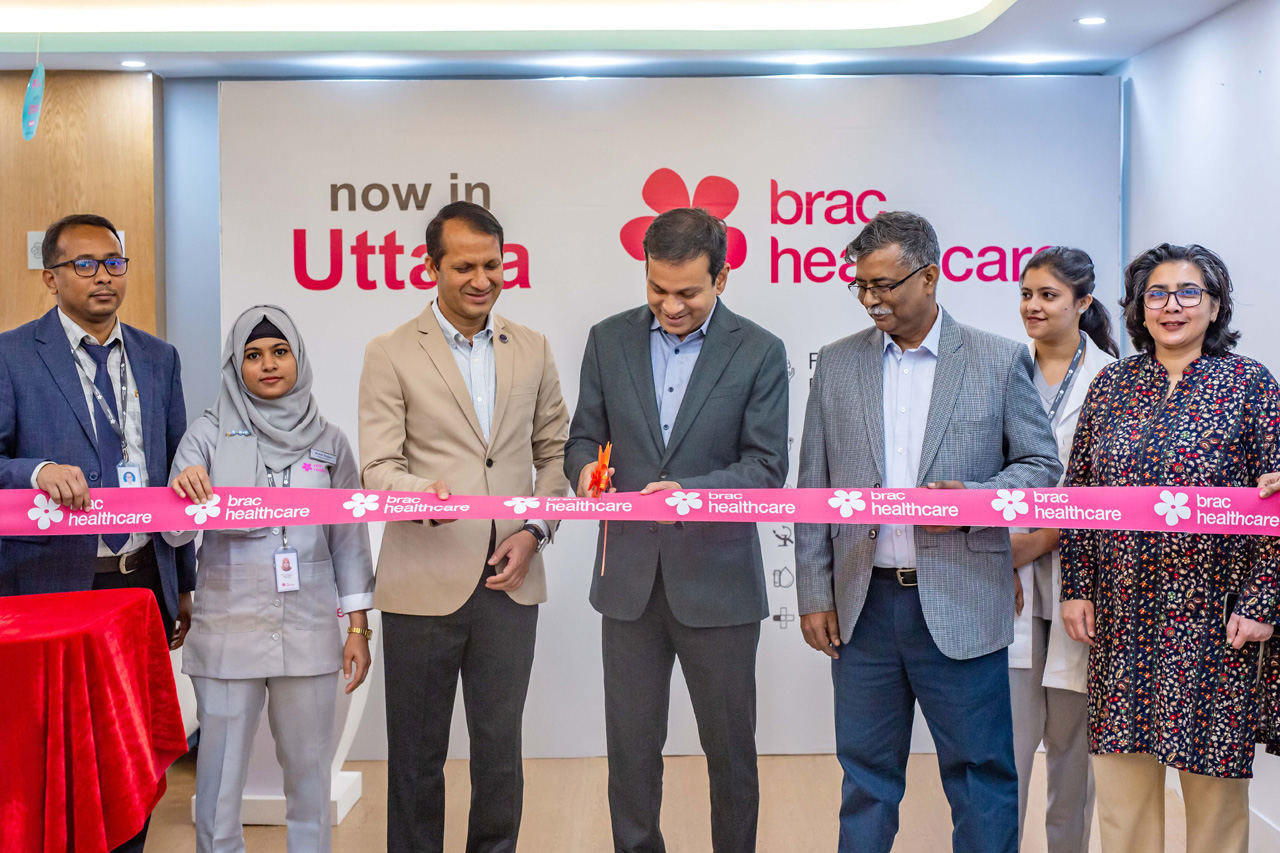
BRAC Healthcare Limited, a concern of BRAC Enterprises, inaugurated its second healthcare centre in Uttara. Asif Saleh, Executive Director of BRAC, officially opened the centre, situated at House 15, Road 12, Sector 6, Uttara, Dhaka, on Wednesday, 6 March, 2024.
Focusing on creating a welcoming atmosphere, BRAC Healthcare centres prioritise a client experience characterised by warmth, empathy, and comfort, aiming to replicate the feeling of being cared for by a close family member.
This expansion marks a significant milestone in the healthcare sector as BRAC Healthcare commits to delivering top-tier, patient-centric medical services adhering to the highest ethical standards. Staffed by a team of highly qualified medical professionals, the centre pledges to meet evolving healthcare needs through six key service pillars: Family Physician and First Aid Care, Doctor Consultations, Health and Wellness (Physiotherapy, Mental Health, and Nutrition), Dental Care, and Diagnostics. The centre also hosts a government-registered model pharmacy, offering access to safe medicines at competitive prices with experienced Pharmacists ready to dispense medication to clients.
In the opening ceremony, Asif Saleh, the Executive Director of BRAC, emphasised, " We acknowledge the prevailing notion that quality healthcare services are often unattainable during emergencies. However, if achieved, it is considered a blessing. We are committed to changing this reality. Patient-centric medical care is our guiding principle at BRAC Healthcare."
Expressing optimism, he remarked, “While it may not be feasible for us to reach the entire population, we aspire to set a standard with the quality of medical services provided by BRAC Healthcare. I hope that witnessing BRAC's exemplary medical care will inspire others to elevate their standards, leading to a positive transformation in the entire healthcare sector.”
Mohammad Anisur Rahman, Senior Director, BRAC Enterprises, stated, "Throughout the one-year journey, our primary objective was to deliver high-quality service to our patients, ensuring a positive experience for them. We believe that we have largely succeeded in this endeavour. Over 90 per cent of individuals who have accessed healthcare from Kazipara centre expressed high satisfaction with our service delivery process.”
Equipped with cutting-edge imaging technology, including X-ray and Ultrasonography (USG), as well as a full-fledged laboratory, the centre promises to deliver timely and accurate test results. BRAC Healthcare's comprehensive dental services encompass regular check-ups, teeth cleanings, cosmetic fillings, tooth extractions and more.
After the successful launch of its first centre at Kazipara in March 2023, BRAC Healthcare served more than 11,000 patients, with 50 per cent of them being women and around 22 per cent below 15 years of age. These patients, and their families, hailed from various socio-economic backgrounds.
This year, BRAC Healthcare plans to extend its services and establishing more centres in various parts of the city and across the nation in the future, aiming to bring positive transformations to the lives of the middle-income population.
The newly inaugurated centre, located at House 15, Road 12, Sector 6, Uttara, Dhaka, is now open for appointments and patient services. For more information about BRAC Healthcare and its services, please visit www.brachealthcare.com, or dial 8809678191911.
Business Unusual – Can we collectively fix financing for locally-led adaptation?
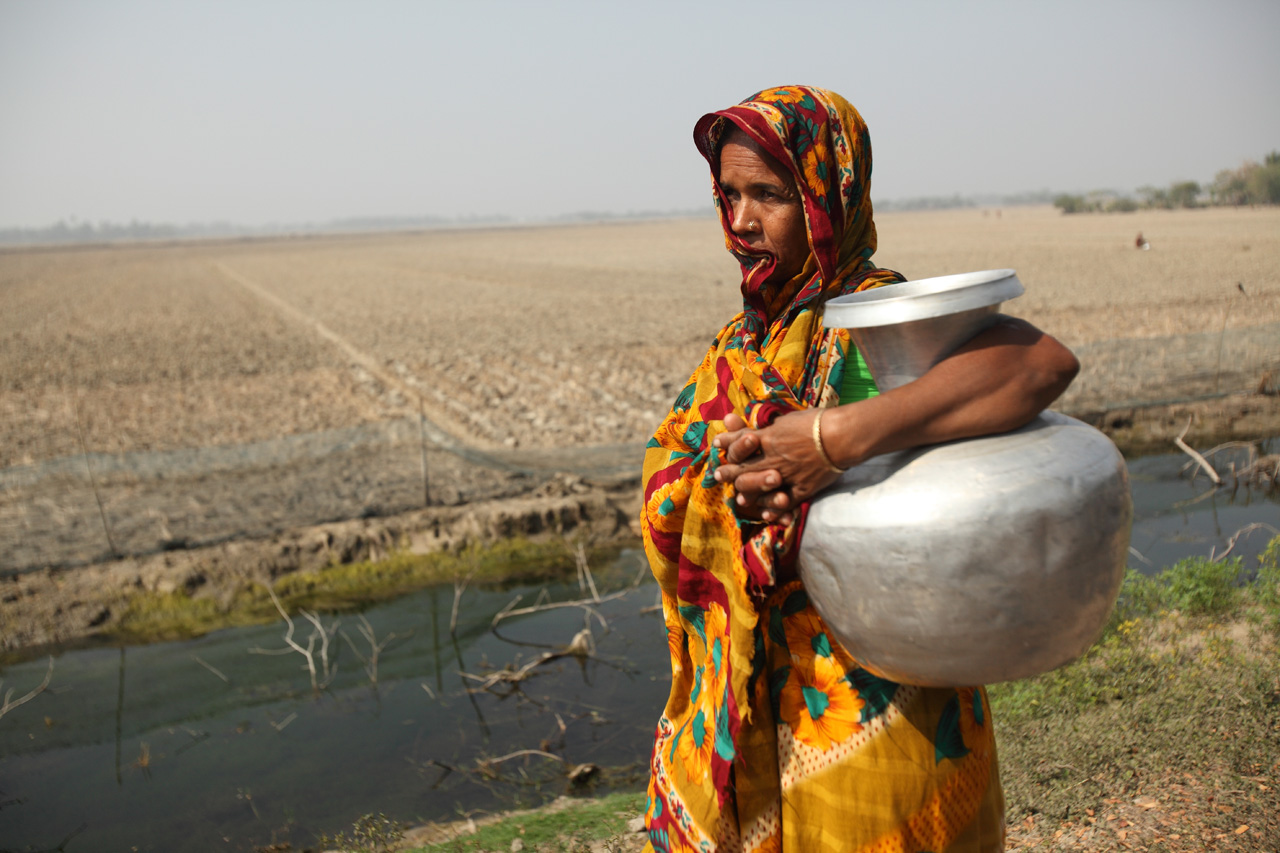
Written by May Thazin Aung, Saqib Huq and Isabel Whisson
Adaptation finance is failing local actors at the frontlines of climate change. A very small proportion of funds disbursed by providers of climate adaptation finance arrives at the local level after being channelled through layers of international intermediaries.
This meagre amount is incredibly hard for local actors to both access and use towards climate action as financing comes with numerous conditionalities encoded into provider’s and intermediaries’ operational rules and policies. For local organisations, these policies translate to confusing eligibility criteria, lengthy applications, rigid due diligence procedures and detailed financial and impact reporting.
It is vital that adaptation finance institutions transform institutional processes within their bureaucracies towards a more business unusual approach. This will require critical introspection around evaluating, absorbing and distributing risk - reputational, financial and political.
Multilateral funds and bilateral donors have stated their commitment to addressing these roadblocks. However, institutionalising change throughout complex bureaucracies in a way that reflects needs on the ground in communities affected by climate change, entails a thoughtful and inclusive process that needs to involve local actors directly tackling the issues being addressed.
BRAC, IIED and ICCCAD have been championing the shift towards an inclusive ‘business unusual’ approach to climate action along with leaders of federated grassroots and regional organisations from the global south. This month at the Fourth Global Gobeshona Conference, BRAC, ICCCAD and IIED are launching a joint initiative to engage stakeholders across the adaptation finance delivery chain, from bilateral donors, to funds, to local civil society actors to understand what the key bottlenecks are and how they may be ameliorated.
Gobeshona’s Keynote Discussion, ‘Business Unusual - How can we make financing for LLA more accessible?’ at 06:00 pm Bangladesh Standard Time (12:00 pm GMT) on Thursday 7 March, will initiate a discussion and share a survey to help us gather insights from both local civil society organisations working on the frontlines of climate change, as well as climate adaptation funders on the key challenges both sets of constituencies face in either accessing or simplifying climate adaptation financing.
We will use the findings to work with all relevant actors to identify a practical set of options that reflect the needs and priorities of local implementers engaged in the adaptation financing chain - among whom we share a common goal: to maximise the ability of climate-vulnerable communities to adapt to the climate crisis.
The survey will remain open until 30 April.
BRAC Career Hub launches in Khulna
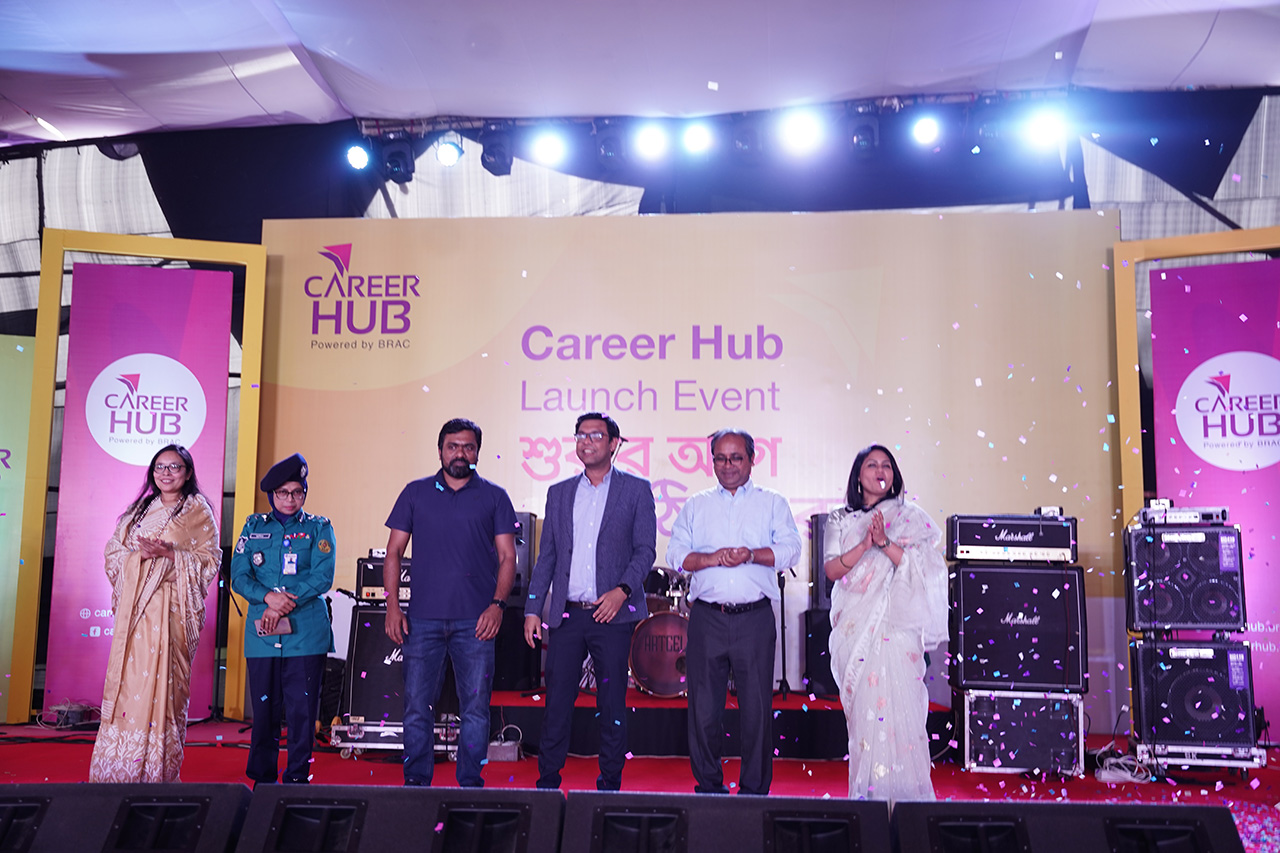
BRAC has inaugurated a Career Hub in Khulna, signifying a significant effort to connect job seekers with employers, thereby fostering an effective relationship between the two.
The launch event for the Career Hub, organised by BRAC's Skills Development Program (SDP) with support from KFW, took place at the Mohila Krira Complex in Khulna on Saturday, 24 February 2024.
Rashida Begum, Additional DIG, Khulna Metropolitan Police was present as Honourable Guest at the event. In addition, BRAC's Senior Director, People, Culture and Communications, Moutusi Kabir; Head of Secretariat, Climate Bridge Fund, Dr. Mohammad Golam Rabbani; Associate Director, BRAC Skills Development Programme, Tasmiah Tabassum Rahman; and Programme Manager Shahriar Islam was also present at the event.
Rashida Begum, Additional DIG, Khulna Metropolitan Police stated, "Job interviews often inquire about prior experience, yet even in the absence of such, opportunities for skills development are available through the career hub. This avenue subsequently aids job seekers in exploring a range of employment possibilities."
In her inaugural speech, Moutushi Kabir, BRAC's Senior Director, People, Culture and Communications, said, “Consider Career Hub as your ally in advancing your career, your reliable resource for addressing all career-related inquiries. Here, you'll find guidance on shaping a prosperous life post-education. BRAC Career Hub endeavours to establish connections with available job opportunities, cultivate essential skills for recruitment assessments, and bolster the confidence of aspiring job seekers.”
Tasmiah Tabassum Rahman, Associate Director, BRAC Skills Development Programme said, “There are three primary reasons why a student may fail to secure employment matching their qualifications upon completing their studies: inadequate job information, insufficient career guidance, and limited job opportunities. Career Hub aims to address these concerns by providing guidance and support to job seekers in navigating these challenges.
The main attraction of the second part of the opening ceremony was the mesmerising performance of Artcell.
According to Bangladesh Bureau of Statistics (BBS) 2022 data, the current unemployment rate in the country stands at 3.53 per cent. The labour force survey-2022 published by the BBS indicates that the rate of Bachelor's degree holders in the country has increased from 11.2 per cent in the fiscal year 2017 to 12 per cent in 2022. The survey also reveals that the number of unemployed graduates has nearly doubled in these five years, reaching around 400,000 in 2017.
An analysis of government data from the last few years shows that more than 2 million youth enter the workforce every year in the country with little or no practical knowledge and skills. A 2021 survey conducted by the Bangladesh Institute of Development Studies (BIDS) states that 66 per cent of National University graduates are unemployed. Many jobseekers have never received career counselling or guidance, hindering their ability to develop skills according to employers' needs.
The situation is particularly challenging for women and persons with disabilities due to fewer opportunities to acquire expected skills, negative social attitudes, limited movement opportunities, and societal pressure.
In response to this scenario, employers are also seeking skilled manpower. Taking this into consideration, BRAC initiated this endeavour by establishing career hub centres in Rangpur and Sylhet in 2020. Subsequently, the fourth career hub was opened in Chattogram in 2023, and now in Khulna.
An online platform has also been launched to reach the youth more intensively. Plans are underway to open Career Hub centres in Cox's Bazar and Dhaka this year. This event in Khulna marks the launch of Career Hub services and related facilities for youth, employers, government partner institutions, and other relevant authorities.
BRAC and USAID launch the Bangladesh America Maitree Project to enhance the capacity of local NGOs

Today (15 February 2024), the United States Agency for International Development (USAID) and BRAC launched the new Bangladesh America Maitree Project that will expand new funding and training opportunities directly to grassroots-level nongovernmental organizations (NGOs) to implement development programs in the communities they serve.
USAID Mission Director Reed Aeschliman and BRAC Executive Director Asif Saleh jointly announced the Maitree Project alongside representatives from local NGOs around the country. The project will establish a competitive grant-making facility in which local NGOs can apply for grants to conduct projects in health, education, agriculture, climate resilience, or address other development needs in their communities.
Local organizations will also receive training to improve proposal writing, project design and operational capacity – while strengthening their ability to collaborate, build networks, and develop local solutions to tackle development challenges.
“Locally-led development is the cornerstone of USAID’s philosophy and we are excited to partner with BRAC to help smaller NGOs improve their development programs and foster a more vibrant civil society,” said USAID Mission Director Reed Aeschliman.
Md. Saidur Rahman, Director General (DG) of the NGO Affairs Bureau at the Prime Minister’s Office, welcomed the Bangladesh America Maitree Project and emphasized the importance of collaboration between the public and private sectors for the advancement of the country.
In his remark, BRAC Executive Director Asif Saleh said, “Localization is not an end in itself, but rather a means to an end. BRAC started as a relief organization but it grew bigger by continuously listening to the community. All its activities including microfinance, education, and health started as a response to community needs. Local level NGOs must devise their own solutions to address specific challenges instead of relying on donor-driven approaches. And that is why I am so excited about this Maitree Project, which aims to advance locally-led development.”
Local NGOs operating at the grassroots level have played a vital role in boosting Bangladesh's socio-economic development. As the country is eyeing graduation, local NGOs and civil society organizations can more easily adopt innovative program design methods, form partnerships with the private sector, and enhance their organizational strengths – enabling Bangladesh to witness a stronger civil society, significantly contributing to its path to becoming a middle-income country.
The Maitree Project will provide local NGOs with more resources for innovation and growth, and will actively transform the local partner ecosystem by promoting collaboration, coalition-building, and advocacy at various levels. The ultimate goal is to create a more resilient and dynamic civil society, benefiting Bangladesh's overall economic progress.
With support from USAID, the Bangladesh America Maitree Project is implemented by BRAC and aims to strengthen civil society in Bangladesh.
BRAC Academy launches in Bogura
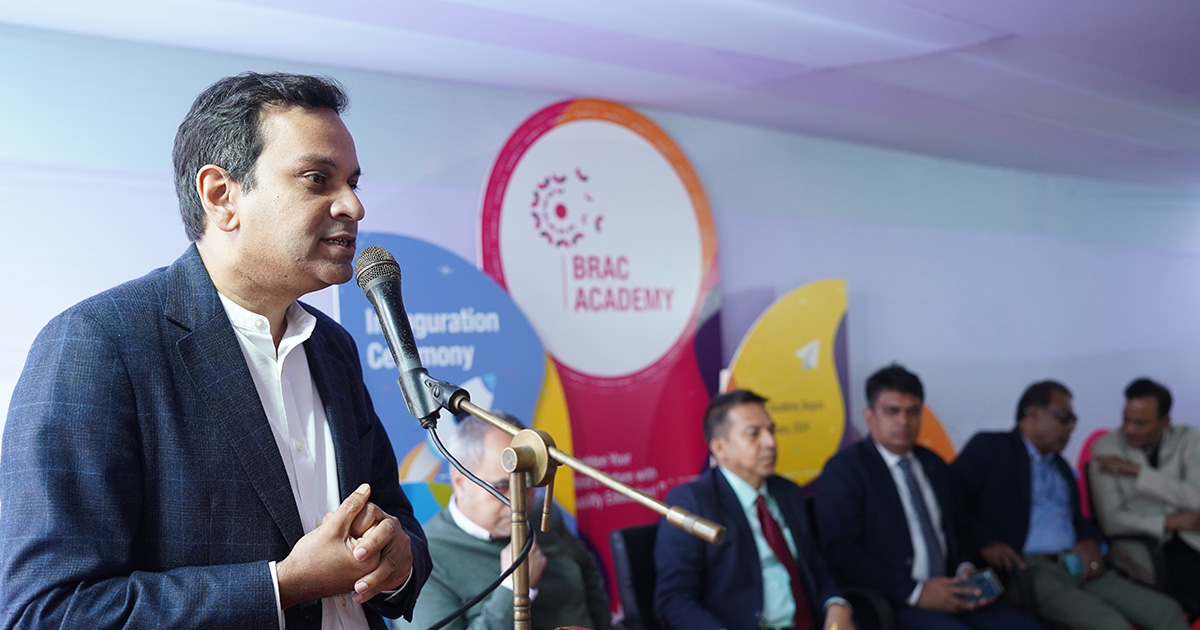
BRAC Academy, one of BRAC Education Programme’s flagship models, proudly announces the establishment of its second branch in Bogura (the first branch was launched in Cumilla in 2019), marking a significant milestone in its journey towards providing quality education to children across the nation.
The Academy, is a child-centred affordable school chain offering primary education in district towns. It offers modern teaching-learning methods, enriched content, and skills to ensure students are nurtured towards successful adulthood by sparking their learning curiosity and instilling in them excellent values, behaviours, respect and responsibility.
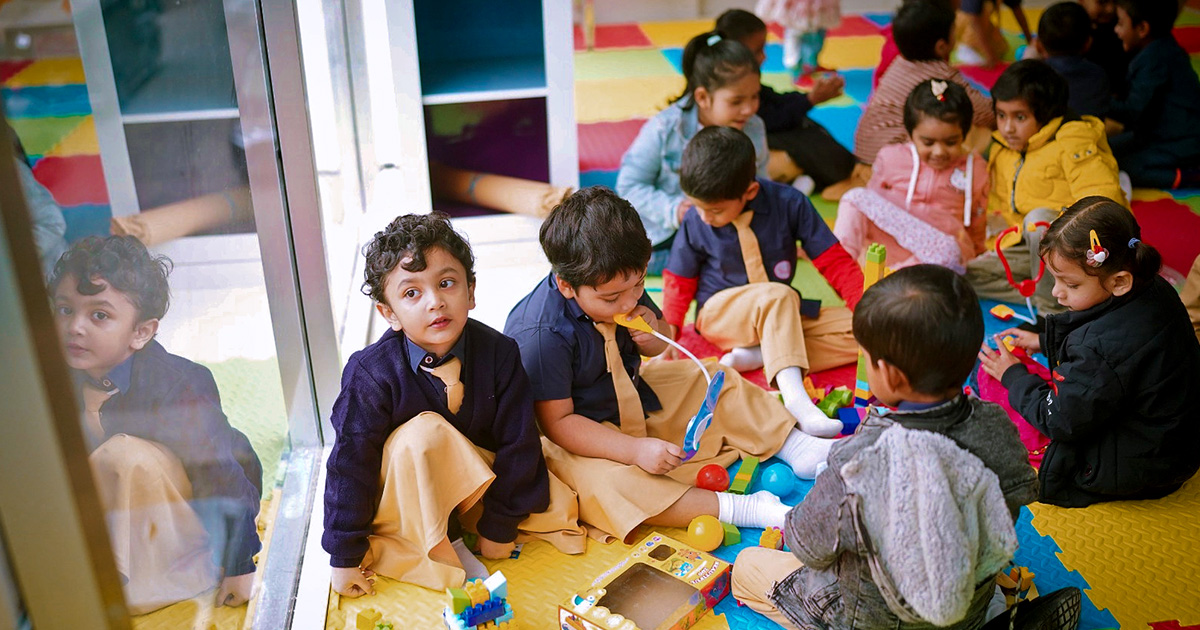
The Academy opened its door on 10 January 2024 and was officially launched by the Executive Director of BRAC, Asif Saleh, today, 7 February, in Bogura.
The launching took place amidst great enthusiasm and anticipation from the local community. 102 students, ranging from Play Group to Grade 3, were warmly welcomed into the school, symbolising the beginning of a promising academic year filled with opportunities for growth and success.
Safi Rahman Khan, Director of Education, Skills Development, and Migration at BRAC, opened the event with a welcoming message for all the parents and students.
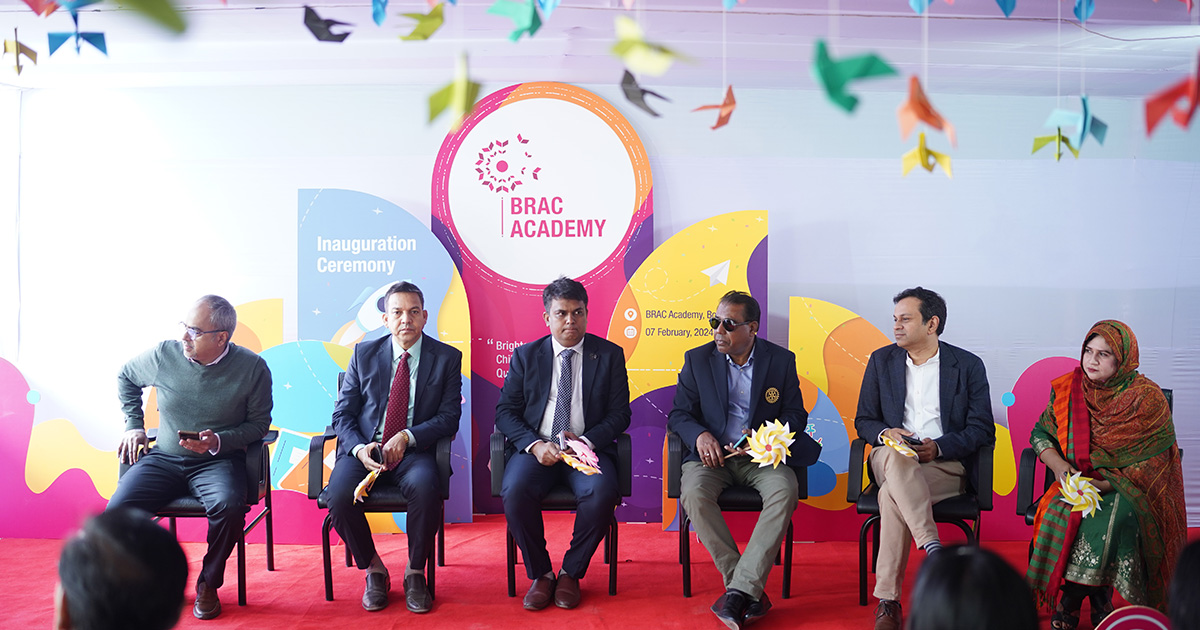
The event was graced by the presence of esteemed guests, including Chief Guest, Additional District Commissioner (General), Mohammad-Al-Maruf; Special Guest Mayor, Md Rezaul Karim Badsha, and Special Guest Assistant District Primary Education Officer, Md Zaved Akhter.
Mohammad Al-Maruf expressed amazement at the innovative approach of the model school, highlighting its focus on playful learning and modern pedagogical methods, something he never experienced during his childhood. He further emphasised the strong awareness among parents in Bogura for quality education, evident from the academy's demand. Based on this, he urged BRAC to consider establishing a dedicated campus and expanding the school to cater to the growing needs.
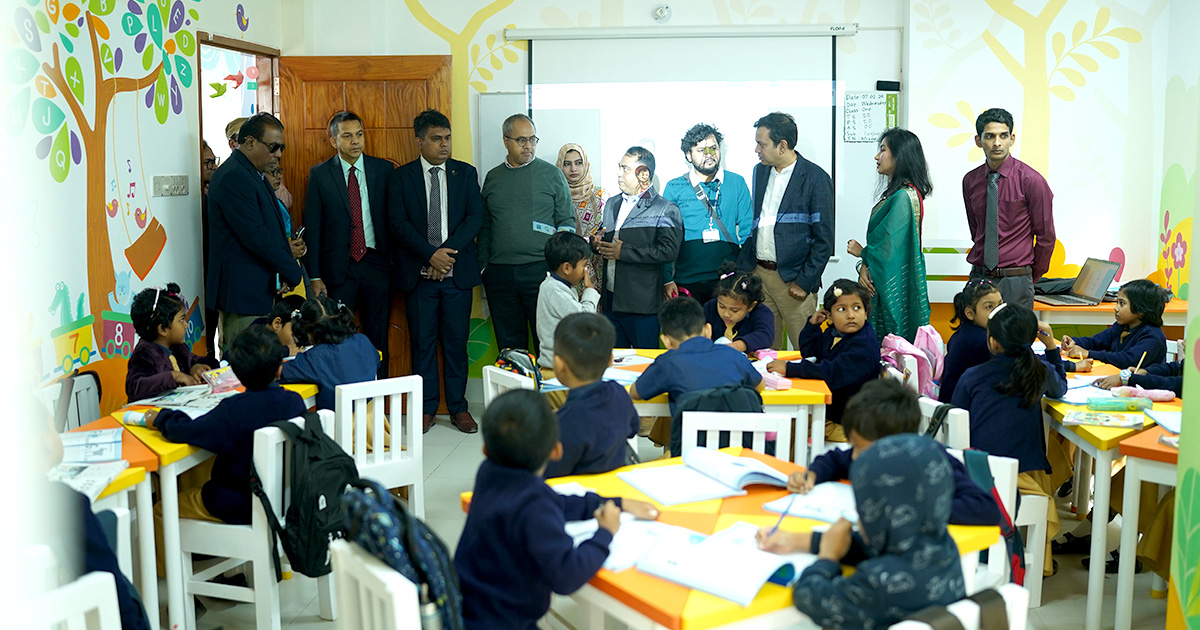
Asif Saleh presided over the event, lauding the team's relentless efforts in making the academy a reality. He expressed his deep appreciation for their work, encompassing not just the meticulous design of the school premise but also the crucial groundwork in the curriculum. This involved extensive research, collaboration with international consultants, and thoughtful adaptation of global trends to create a cutting-edge educational programme.
BRAC Academy aims to empower young minds with the tools they need to become future leaders and changemakers. With its expansion to Bogura, BRAC is poised to make a lasting impact on the local community by providing quality education accessible to all.
For admissions and inquiries, interested individuals are encouraged to contact BRAC Academy at 8801332743374 or 8801716386286.
MoU signed for economic inclusion and social protection for the marginalised communities
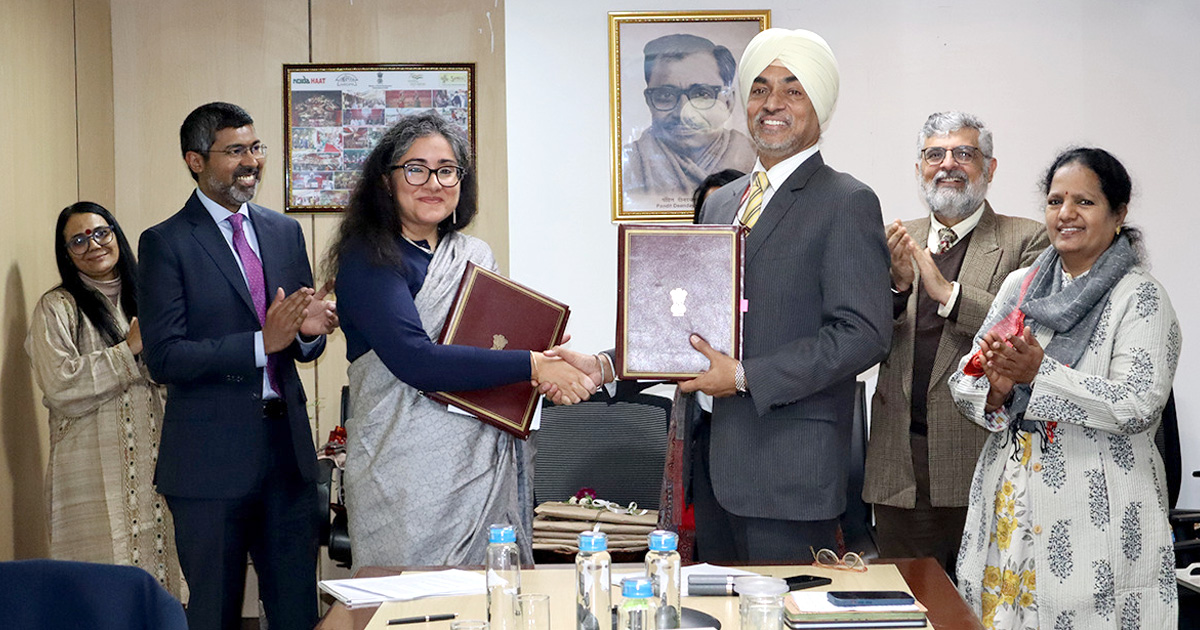
National Rural Livelihood Promotion Society (NRLPS), MoRD signed MoU with BRAC International for economic inclusion and social protection for the poorest of the poor women
Caption for image above (left to right: Mona Dave, Consultant for BRAC International, Shameran Abed, Executive Director of BRAC International, Shweta Banerjee, Country Lead for India, BRAC International, Shri Charanjit Singh, Additional Secretary and CEO of NRLPS, Smt Smriti Sharan, Joint Secretary (RL-1) of DAY-NRLM, Raman Wadha, Director of DAY-NRLM, P. Usha Rani, IBCB SISD and HR, NRLM)
National Rural Livelihood Promotion Society (NRLPS), an autonomous body under the Ministry of Rural Development (MoRD) signed an MOU with BRAC International, a Global South-led organisation with a mission to empower people and communities. The MoU has been signed for inclusion of the poorest of the poor under Deendayal Antyodaya Yojana National Rural Livelihoods Mission (DAY-NRLM), a flagship programme under MoRD. The MoU was formalised by Additional Secretary and CEO of NRLPS, Shri Charanjit Singh and Country lead for India, BRAC International, Ms. Shweta S Banerjee in the presence of Joint Secretary (RL-1), DAY-NRLM, Smt Smriti Sharan, Director, DAY-NRLM, Mr. Raman Wadhwa and Executive Director, BRAC International Mr. Shameran Abed.
In his address, Shri Charanjit Singh remarked, “The DAY-NRLM mission has reached a stage where more than 100 million women members have been mobilised into community institutions.” He emphasised on the role of partnerships and leveraging BRAC’s global experience in reaching those furthest behind.
Smt Smriti Sharan conveyed, “this partnership is taking shape at a crucial juncture for DAY-NRLM, which has been steadfastly dedicated to universal and inclusive mobilisation. With 100 million rural poor households mobilised already, our focus now shifts to uplifting ‘lakhpati didis’ through Samaveshi Aajeevika, an inclusive livelihood programme, while also ensuring the inclusion of the most marginalised in the SHG movement.”
Mr. Shameran Abed extended his gratitude to both DAY-NRLM and BRAC India team for their dedication in recognising their respective strengths and coming to an agreement to sign the Memorandum of Understanding (MoU). He expressed BRAC’s readiness to collaborate with the Ministry in facilitating Samaveshi Aajeevika with the government taking the lead.
Samaveshi Aajeevika aims to build self-confidence, social inclusion, and prosperity via inclusive livelihoods at the last mile. The programme will introduce holistic productive inclusion strategies to improve the lives of excluded populations. It will adapt a globally tested and proven “Graduation approach” to the DAY-NRLM programme to reach those households that are presently having difficulty benefiting from the SHG net.
Founded in Bangladesh in 1972, BRAC now works in 17 countries and has partnered with over 100 million people, delivering cost-effective, evidence-backed interventions. One such intervention is the globally recognised “Graduation approach” that has been taken up by private organisations and governments and evaluated extensively with positive results.
BRAC welcomes Divya Bajpai as Executive Director of BRAC in Europe
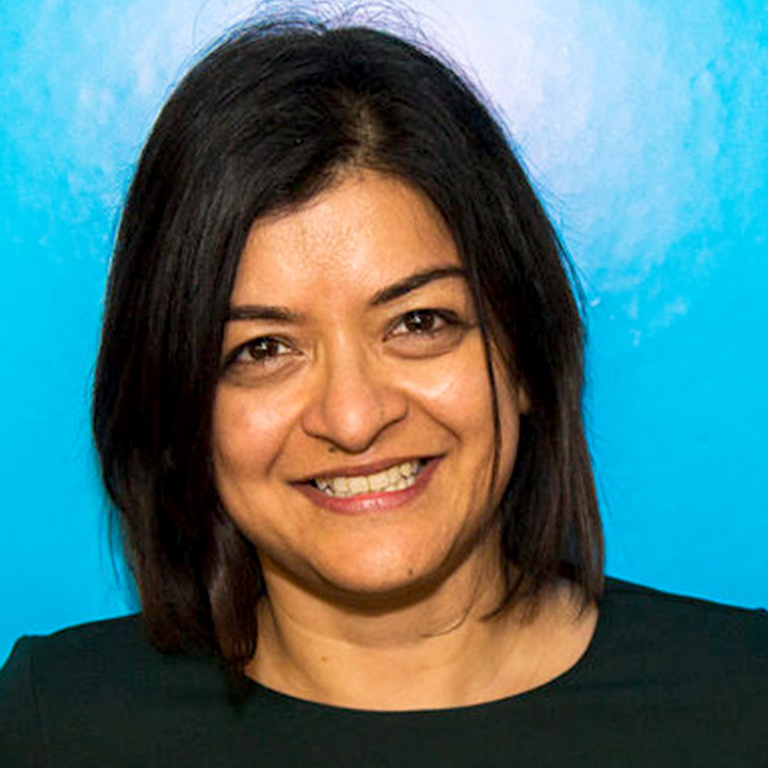 BRAC is pleased to announce that Divya Bajpai will be joining the organisation on March 2, 2024 as Executive Director for BRAC in Europe, responsible for the development of our partnerships with European-based partners.
BRAC is pleased to announce that Divya Bajpai will be joining the organisation on March 2, 2024 as Executive Director for BRAC in Europe, responsible for the development of our partnerships with European-based partners.
This is a new role designed to lead BRAC’s ambitious plans to forge strategic partnerships in Europe to scale up innovative programming approaches in Africa and Asia, and to influence development and humanitarian policies in Europe, towards a shared goal of ending extreme poverty in the world.
Divya, who is currently Interim Executive Director at Frontline AIDS, said: “I am delighted to be joining BRAC at this exciting time as we embark on ambitious plans to broaden and scale up our partnerships across Europe. As the sector works out how best to realise our ambition of empowering our southern partners, I believe BRAC has a unique role and responsibility to help shape this transition.”
Ken Caldwell, Chair of Trustees at BRAC in UK, said: “I am delighted that we have been able to appoint Divya to this new role. She brings considerable experience of developing funding and advocacy partnerships across Europe and a real passion for bringing stronger southern voices to shaping international development policies and priorities.”
Executive Director of BRAC, Asif Saleh, also commented on the appointment. “We are aiming to strengthen and broaden our partnerships across Europe, in order to scale up innovative programmes in Asia and Africa focused on supporting families to escape from extreme poverty and to combat the consequences of climate change. We hope to bring the insights from this work to help key decision-makers in Europe to contribute to solving these key global challenges. I am looking forward to working closely with Divya as she leads our efforts to deliver this ambitious plan.”
BRAC achieved recognition as the leading contributor to tax revenue
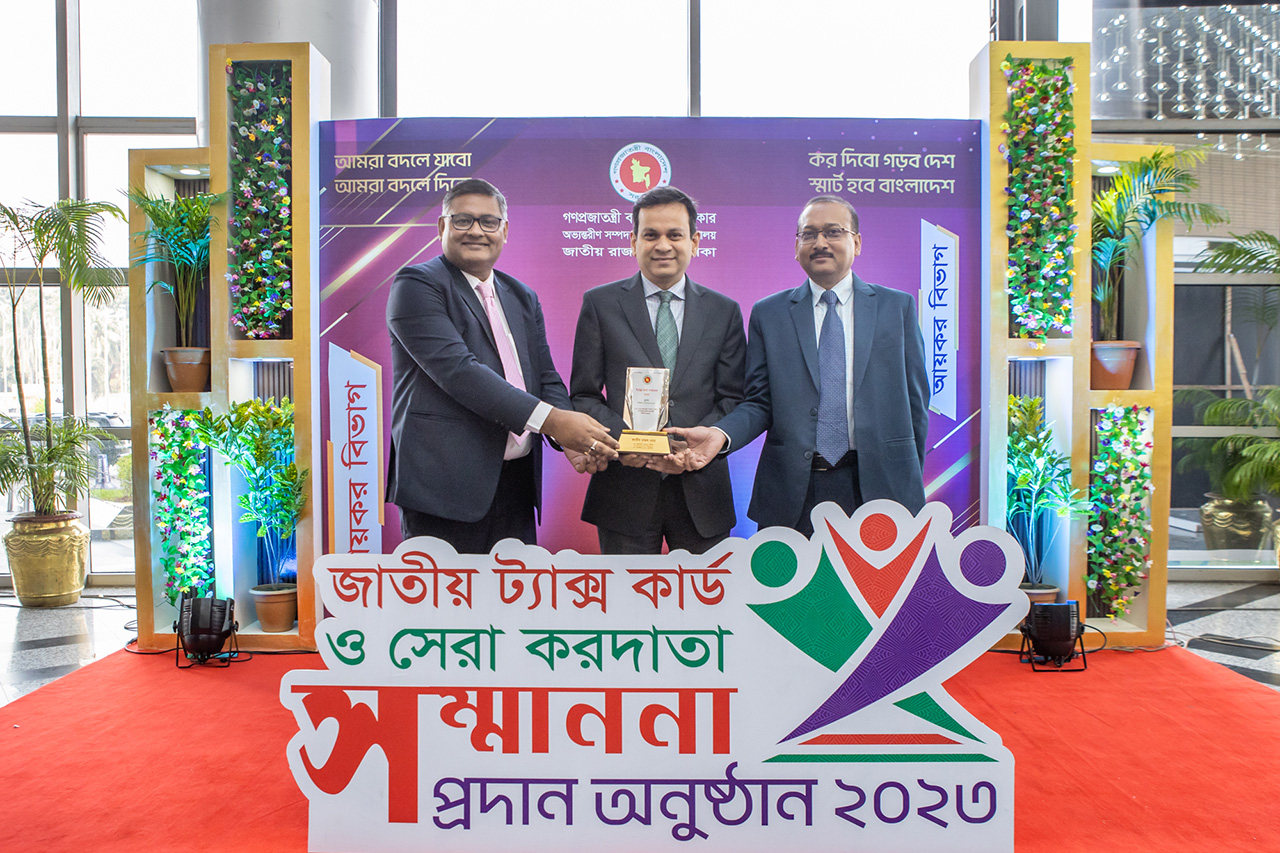
In the fiscal year 2022-23, BRAC achieved recognition as the leading contributor to tax revenue. The National Board of Revenue (NBR) bestowed this honour on Wednesday, 20 December 2023. NBR Chairman, Abu Hena Md. Rahmatul Muneem presented the accolade to BRAC's Executive Director, Asif Saleh, during the National Tax Card and Best Taxpayer Awards ceremony held at the Bangabandhu International Conference Center. Tushar Bhowmik, Chief Financial Officer (CFO) and Ashit Baran Das, Associate Director, BRAC, were present.
A total of 141 individuals and organisations received tax cards from the NBR as a tribute to their outstanding contributions as the best taxpayers.
More...
Join the world’s biggest family

